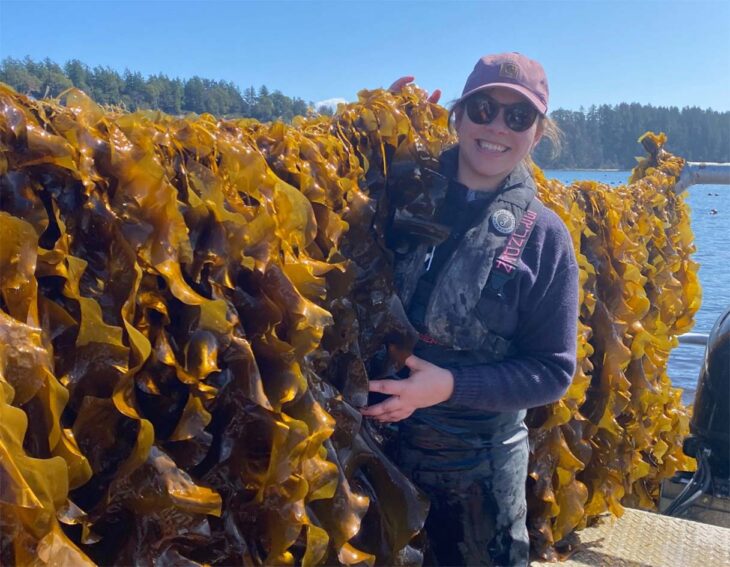THE PROBLEM
To build a regenerative farming economy and feed 9.5 billion people by 2050, we urgently need effective, climate-resilient solutions for farmers that reduce costs and emissions and increase yields at a large scale. If these solutions are not scaled urgently, the demand, and economic activity, will be met by other regions, primarily Asia.
The global demand for agricultural products derived from seaweed grows more than 8% pa, with the cattle feed market in North America valued at US$2.8B. This demand is currently being met with seaweed harvested from the wild but these vital organisms are under threat due to warming oceans. Significant research is being conducted on the viability of a warm water seaweed for cattle feed to reduce methane emissions, however, this species is invasive in Canada and is being cultivated in tanks on land and therefore does not provide ecosystem services as it grows.


